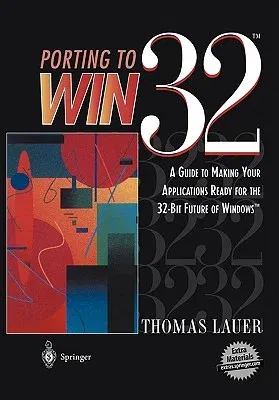Thomas Lauer
(Author)Porting to Win32(tm): A Guide to Making Your Applications Ready for the 32-Bit Future of Windows(tm) (Softcover Reprint of the Original 1st 1996)Paperback - Softcover Reprint of the Original 1st 1996, 3 November 1995

Qty
1
Turbo
Ships in 2 - 3 days
In Stock
Free Delivery
Cash on Delivery
15 Days
Free Returns
Secure Checkout
Part of Series
990
Print Length
428 pages
Language
English
Publisher
Springer
Date Published
3 Nov 1995
ISBN-10
0387945725
ISBN-13
9780387945729
Description
Product Details
Author:
Book Edition:
Softcover Reprint of the Original 1st 1996
Book Format:
Paperback
Country of Origin:
US
Date Published:
3 November 1995
Dimensions:
23.57 x
17.75 x
2.34 cm
ISBN-10:
0387945725
ISBN-13:
9780387945729
Language:
English
Location:
New York, NY
Pages:
428
Publisher:
Series:
Weight:
725.75 gm

